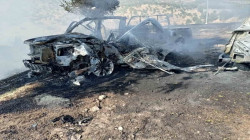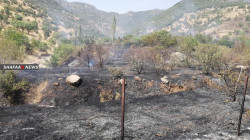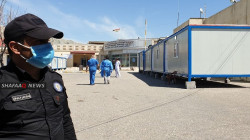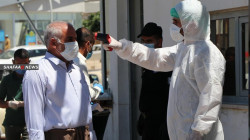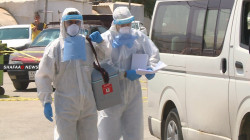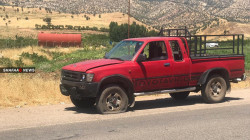After Withstanding Saddam and Baghdad.."The Lion’s Milk" in the face of the biggest fears
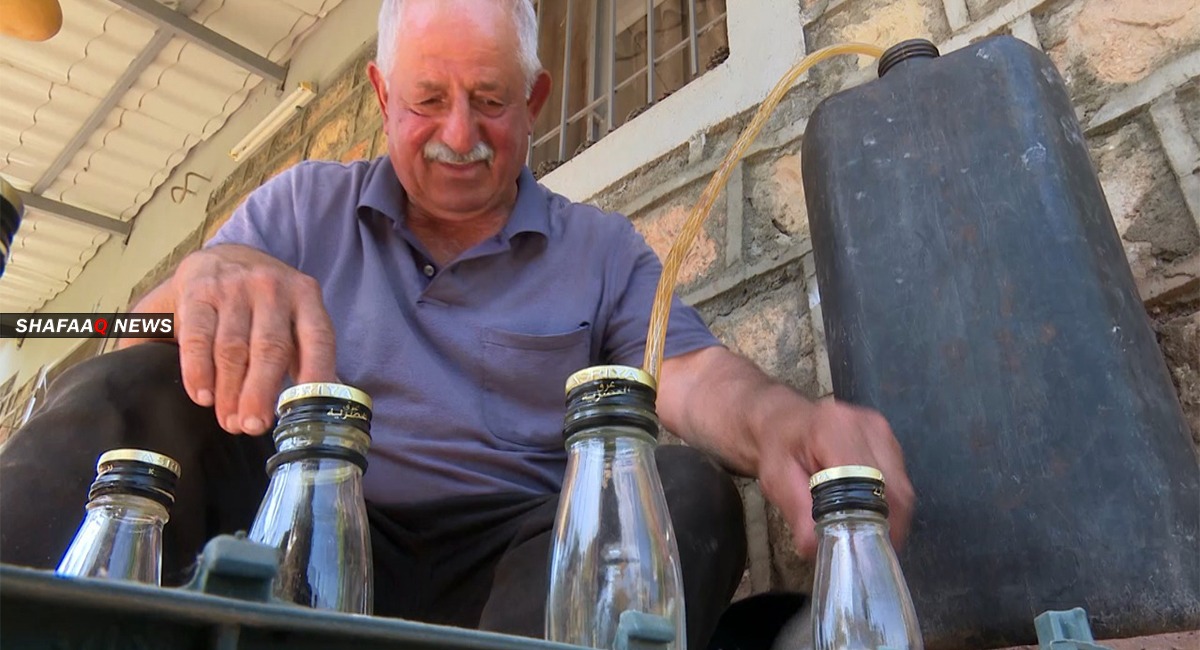
Shafaq News/ In Kani Masi sub-district (located north of Zakho district in Duhok governorate) lives Boutros Barwari, a Christian man who spent most of his life in the local Arak industry (alcohol beverage).
Boutros owns an orchard that spans a wide area in a breathtaking mountainous area and derives from the orchard its raw materials, especially grapes, to make the Arak in a primitive hand-crafted manner.
Boutros told Shafaq News agency that he inherited the local alcohol industry from his grandfather, and he has been working since he was a young man helping his father make the Arak.
"In this season (in summer) we harvest grapes and move them home to boil them on fire three times to avoid acidity", Boutros said explaining the procedure of making the local Arak, and added, "The process is easy, it takes 15 to 20 days -depending on the temperature, to produce the local Arak”.
Boutros is one of the Iraqi Christians who, along with their churches, has been subjected to occasional attacks from extremist Islamist militants since 2003.
ISIS's invasion of northern and western Iraq has made many Christians immigrate from their country, as the group has preferred them to leave, pay a tribute, or face death.
According to Christian clerics, since the U.S. invasion of Iraq that toppled Saddam Hussein's regime in 2003, the number of Christians has dwindled by 83%, from about 1.5 million to just 250,000.
About 85% of Iraq's Christians live in Kurdistan, where they feel safe unlike the rest of Iraq.
Boutros complained about the poor marketing of his product due to the influx of foreign products into the country through imports.
He also recalled the "golden period" of this industry by saying, "the 1990s was the golden period for the production of local alcohol, due to the lack of importers", adding, "One bottle of local Arak was sold for 25 dinars, which is now more than 50,000 dinars (about 42 dollars)”.
In Iraq, Arak was called "The Lion’s Milk", for after the addition of water it becomes the color of milk; at the time, Iraqis mocked those who drank beer and wine and linked drinking the local Arak to brave men.
But today, the local Arak industry has experienced volatility that, at some point, has left its owners behind bars.
Boutros says that in the 1980s under Saddam Hussein's regime, the liquor industry was banned locally, and people at the time called it the "Kachak Arak", meaning the forbidden Arak that used to be smuggled. He also noted that the authorities of the former regime arrested his cousins many times and imprisoned them because of this industry.
After the uprising in Kurdistan in the early 1990s, local alcohol makers were freed from the shackles and operated freely.
Unlike Kurdistan, liquor stores have been the subject of repeated attacks by Islamist militants of the Sunni and Shiite faiths.
On October 22, 2016, the Iraqi parliament - like the Saddam era- passed a law banning the import, manufacture, and sale of alcoholic beverages.
Article 14. A of the said law states that it "prohibits the import, manufacture, and sale of alcoholic beverages. Those who violate the law are punishable by a fine of 10 to 25 million dinars, per the law”.
At the time, the law drew condemnation from Christians and non-Muslims, arguing that it violated the Iraqi Constitution, which prohibits any legislation that contradicts individual rights and freedoms.
However, this law has not been an obstacle to Boutros continuing to make his own local Arak, despite the decline in his trade due to cheap imported goods.
Boutros says “domestic products are generally not popular due to the poor purchasing power of consumers, as well as the flooding of the market with cheap imported products”.
Just as Boutros first received the keys to the local Arak industry from his father, he passed this knowledge on to his sons, who help him throughout the product industry and to market it; to preserve the legacy of one of the oldest handicrafts in the history of Iraq and the world.
